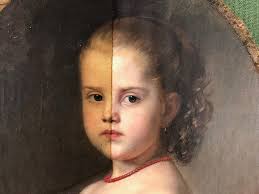 |
||||
|
What Career Choices Are Open to You with an Art History Degree?
If you've enrolled in a university Art History undergraduate programme, you might have already thought of the obvious career paths such a degree could pave for you: museum curator, art teacher or something in art conservation and restoration. Considering the last few high-profile restoration efforts gone awry, we might argue there is a distinct need for such qualified people. Fortunately, these instances are rare overall but, to keep them in the minority, the art world can never have enough talented art historians who know the story behind any artwork they restore and care for. What if you have thought of and discarded these careers already? Maybe they just didn't feel right or weren't what you're really looking for. Should that be the case, try these job titles on for size. Art Appraiser: an art appraiser may work in a museum, an art gallery or even consult independently to appraise and authenticate works of art. You might have seen such art appraisers at work on television shows such as Roadshow Antiques or its American cousin, Antiques Roadshow. Art Consultant: art galleries don't just randomly place their pieces. Often, they call in consultants to advise them on their exhibits. You may do anything from directing how and where pieces should be displayed to writing description placards and brochures.
Art Handler: have you ever wondered about the logistics of museums and collectors lending works of art? Those magnificent pieces have to be packaged and transported by someone - preferably one knowledgeable in the works' origins and particulars. An art handler may also install such works and outfit them with safety and anti-theft devices. Art appraisers, consultants and handlers may also find work in the finer auction houses. Framer: along the lines of art handling follows art framing. From the elaborate gilded baroque frames to the minimal enclosures for modern art pieces, nobody knows how better to showcase a piece than art historians. Could you imagine Warhol's Marilyn surrounded by ostentatious gold leaf? How about the Mona Lisa in a shadowbox frame? Art Critic: far from the 'everyone's a critic' line, art critics analyse, interpret and evaluate art. Particularly in this field, a firm grounding in art history is vital to appraising up-and-coming artists as well as established masters. You may, for instance, find one painter's brushwork and style evocative of an artist from a few centuries ago. If you think that's impossible, just consider Odd Nerdrum's paintings, which are eerily similar to Rembrandt's. Church Art Restorator: We touched art restoration briefly in this article's introduction, but only to make a point about how art history majors are vital to preserving our records of the human experience. Church art is a breed apart. Often, works of religious significance are afforded greater protections, so the people who preserve such works must know exactly what they're dealing with - from the media and composition of each piece to the sociopolitical climate when the work was executed. And, of course, the religious inclinations of the period.
Archivist: If you're more drawn to art's historical perspectives than handling art, picture yourself as a future archivist. Your responsibilities would include researching, cataloguing and maintaining historical records of your employer's treasures. Such employers might include any entity from the government all the way to private collectors to whom you are contracted - usually through a commercial firm. These are just a few of the exciting fields you may make a name for yourself in as an Art History major. Consider that, as you learn all about art history, you are also training in communication skills, creative and critical thinking, culture interpretation and problem-solving. These skills are highly marketable in every career field, from government work to commercial entities and in all areas of education. You may hone these skills while still at university by tutoring younger students in art history. Art history tutors help to instill a passion for beauty and discovery in their pupils; they bring the past to life through their interpretations of the works they study while cultivating an appreciation for creativity and ingenuity of long-gone artists. Earning a bit of money while doing it doesn't hurt, either!
|
|
|||
|
|
||||
|
|
||||


